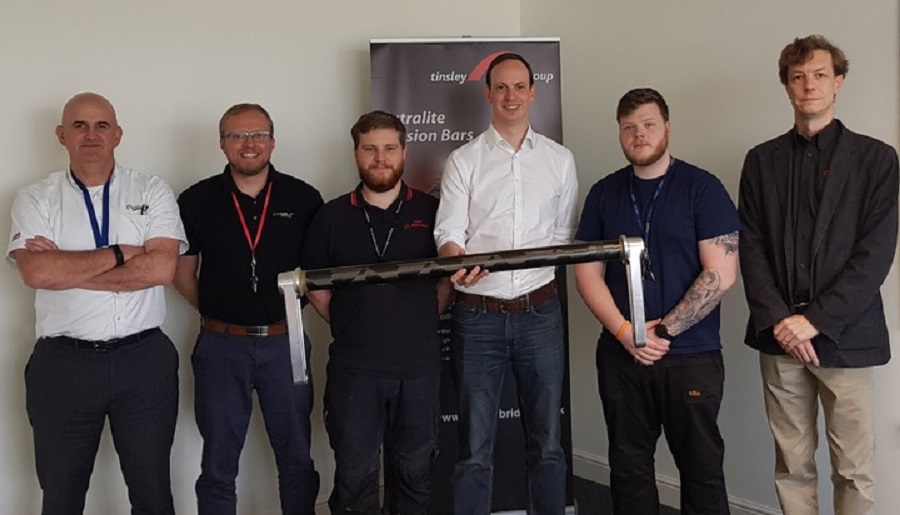
Engineers at Performance Engineered Solutions (PES) Ltd in the UK are developing a hybrid composite-metal anti-roll bar for trucks and trains.
The project has been co-funded by the UK’s innovation agency, Innovate UK, Tinsley Bridge Ltd, which supplies anti-roll bars, and the University of Sheffield Advanced Manufacturing Research Centre (AMRC).
According to the companies, lighter composite anti-roll bars could cut fuel consumption and emissions from rail and heavy road vehicles, when compared to traditional metal bars.
A previous project recorded 65% reduction in the weight of the stabiliser bar by replacing the current solid steel component with a carbon fiber composite member without compromising performance, the AMRC says. The new project will develop the design of the anti-roll bars and undertake simulation tests using Finite Element Analysis (FEA).
The AMRC’s Composite Centre has produced the anti-roll bar prototypes using its MF Tech filament winding system. It also used its CT scanner capability to inspect the inside of the bar, checking the structural integrity and verifying the build quality.
‘Carbon fiber composites are commonly used in high-end supercars, but have yet to see widespread use in the volume automotive sector,’ said PES Performance engineering director, Dean Gardner. ‘This project aims to show the wider benefits that these materials can provide.
‘One of the major challenges has been to achieve a strong and durable interface between the materials in the hybrid anti-roll bars design, in order to achieve the required fatigue performance. With our experience in lightweighting and composites, it is good to be working with Tinsley Bridge and the AMRC on this exciting, potentially ground-breaking project.’
This story uses material from AMRC, with editorial changes made by Materials Today. The views expressed in this article do not necessarily represent those of Elsevier.






